- Home
- Various Authors
Mortal Crimes 1
Mortal Crimes 1 Read online
All works in this collection are copyrighted by their respective authors.
Published by Steel Magnolia Press
THE DEVIL’S HOUR
J CARSON BLACK
CRITICAL VULNERABILITY
MELISSA F MILLER
SOLE INTENTION
M A COMLEY
NIGHT PREY
CAROL DAVIS LUCE
IMPLANT
MICHAEL WALLACE
LITTLE GIRL GONE
BRETT BATTLES
TRIAL JUNKIES
ROBERT GREGORY BROWNE
THE DEVIL’S HOUR:
A LAURA CARDINAL NOVEL
J. CARSON BLACK
Copyright © 2007 by Margaret Falk. All rights reserved. No part of this book may be reproduced or retransmitted in any form or by any electronic or mechanical means, including information storage and retrieval systems, without permission in writing from the publisher, except by a reviewer who may quote brief passages in a review.
Published by Breakaway Media
Tucson, Arizona (USA)
www.breakawaymedia.com
www.jcarsonblack.com
Twitter: @jcarsonblack
Facebook: JCarsonBlack.authorpage
ISBN: 978-1-939145-05-5
140407
For my mom, who taught me at an early age I could be anything I wanted to be, especially a writer.
From the Arizona Daily Star, July 4, 2007
GRISLY DISCOVERY AT CONSTRUCTION SITE
POSSIBLE LINK TO 1997 KIDNAPPING
The bones found in a shallow grave at a construction area on Tucson’s west side yesterday may belong to a missing Tucson girl. Kristy Ann Groves, 14, disappeared from her neighborhood on April 21, 1997, three miles from where the remains were found. Laura Cardinal, the Arizona Department of Public Safety detective in charge of the investigation, declined to comment pending further investigation.
CHAPTER ONE
The Man in the Moon
Summerhaven, Arizona
July Fourth
Steve Lawson was on his way back to the cabin when he met the little girl.
It was a beautiful morning, the kind Steve loved. As he hiked, his eye automatically catalogued the glittery trail of schist mixed in with the dirt along the dry creek bed, the granitic boulders flecked with biotite flakes and garnet. But this morning, he wasn’t thinking about the geological events that had shaped these mountains. He was preoccupied with the message someone had left on his cell phone. He wondered if the message had anything to do with the breakins.
Two nights in a row, somebody had broken into the tool shed behind the cabin. Nothing was taken, but last night they’d slit open a bag of potting soil and dumped it all over the shed floor. And then there was the message he’d retrieved from his cell phone earlier today.
The message had gone on for nearly a minute. Heavy breathing and then crying. A man’s voice mumbling something unintelligible. The only word he could pick out was “Why?” After that, there was silence stretching all the way to the beep. A long, menacing silence. It had left him feeling edgy and ill at ease.
So when Jake, his black Labrador retriever, stopped abruptly on the trail, Steve felt a jolt to the heart.
Jake stood absolutely still, every muscle rigid. The soft flap of his ears pitched forward, and he growled low in his throat. The sound changed to a high-pitched mewl. Steve felt as if someone had pushed him in the back with a forceful finger. “Jake, what’s the matter with you?”
Jake looked at him briefly, then back at the little girl by the creek bed. For a moment, Steve thought of the nearest neighbors over the hill—a family with several children and an angry pit bull chained to a stake out front. The children were unkempt and often stared at him with blank, sullen eyes as he drove by.
But this girl was nothing like those children. This girl looked well-cared for and happy.
She was anywhere from seven to nine years old. Her hair was the color of ripened wheat. She wore some kind of uniform—camp shirt, shorts, and hiking boots. At first he thought she was a Girl Scout, but the uniform was tan with green piping on the collar. Girl Scouts wore mint green. He knew that because he periodically encountered bands of Girl Scouts outside Safeway selling cookies with their mothers.
This girl was crouched down on her heels trying to dislodge a rock from the stream bed.
Steve was aware of all sorts of dynamics that would never have occurred to him even a few years ago. These days, a grown man’s proximity to kids who were not his own, no matter how innocent, took on a cautionary aspect. Enough to make him self-conscious—the same kind of feeling he had when a credit card check by a cashier went on longer than it should have, the feeling that he was guilty, even though he wasn’t.
He was thinking about what to say to her, all the time casting his gaze about for the girl’s mother or camp counselor or classmate, when the girl saw him. She got to her feet. “Hi,” she said.
He hi’ed her back.
She brushed off the dirt from her hands on her shorts. “What a neat dog. Can I pet him?”
Steve glanced around for Jake, who was now ten yards down the trail behind him, sniffing at a fern.
Dogs.
“Jake,” Steve called out. The dog wagged his tail and manufactured a deep, loud whuffle, but kept his nose where it was. It was almost as if he didn’t want to acknowledge either one of them.
“That’s okay,” the girl said, but he could tell she was disappointed. She had a heart-shaped face, a sprinkling of freckles over her nose, and serious brown eyes.
“Normally—” Steve stopped. Why tell her Jake usually loved to meet people? “Are you with a troop? A camp or something?”
“Uh-huh.”
“Where are the other kids?” Wondering immediately if he’d said the wrong thing. Like he was sounding her out, something a child molester would do.
She just shrugged. “I’m looking for my book. Maybe you’ve seen it.”
“What’s it look like?”
“It’s this big.” She held her hands about ten inches apart. “It’s called The Man in the Moon.”
A breeze blew through the ravine. Abruptly, the warm aroma of pine needles was overcome by the stench of garbage. Steve glanced at his grandfather’s cabin. They were downwind from the dumpster.
He was about to ask the little girl why she was looking for a book in the stream bed when his cell phone chimed.
It was his wife—his ex-wife. She of the purple PT Cruiser. Now she had a new SUV and he had the Cruiser, a car he felt ridiculous driving. A purple car.
“I just called to see if we were going to—just a minute.” Steve heard Julie talking to a customer as she rang up a sale.
He waited. A bee zoomed past his face. Jake was back, sprawled at his feet, panting. He glanced around for the girl, but she was gone. Must have gone back to wherever she came from. A summer camp, he guessed. Although he’d never seen anything like that on his walks with Jake.
He squinted against the sun, tried to pick her out on the trail above. Either she was the fastest kid in the world, or she was hiding somewhere.
Julie came back on the phone. “Are you still up at the cabin?” She didn’t wait for an answer. “I’ve got a reading tonight, but after that I was thinking I could drive up and we could have a late dinner. We could go to Lemmon Rock and watch the fireworks.”
Steve broke in. “I’m pretty tired, Jules. I might just go to bed.”
“That would be even better.” Her voice coy.
He blamed himself for that. When they ran into each other at a concert a month ago, one thing had led to another and they had been seeing each other ever since. Steve was beginning to think it was a mistake. The attraction between them was strong, but
he knew the underlying problems remained.
“Look, I’ve got to go,” Julie said, loud in his ear. “I’ll call you later, okay?”
“Jules—”
He was speaking into dead air.
Jake looked up at him with his golden acorn eyes.
Steve sighed and flipped his phone closed. “Do me a favor, will you, Bud? Don’t say it.”
When they got back from their walk, it was one o’clock and Steve was hungry. Even though there were dry goods like soup and potato chips in the cabin, he didn’t feel like facing the kitchen again. Instead, he drove down the mountain a half mile into Summerhaven.
His grandfather’s cabin was one of the few that survived the forest fire which had devastated the mountain a few years ago. The ponderosas near Steve’s cabin were untouched, but large swaths of the mountain were stark and blackened under the new summer grass and ferns.
He remembered his anticipation as a kid, the road dropping down to the last curve into Summerhaven, revealing the lodge and a couple of eateries and souvenir shops. The shade trees along the creek had been spared, but the old structures were gone. New houses and businesses were going up, bigger and grander, but lacking the character of the old cabins. Every time he drove in, he saw more raw wood frames, plywood siding, and finished mansions.
Steve left Jake in the shade outside the Mount Lemmon General Store and threaded his way to the cold case. He got a salami-and-provolone sub, Gatorade, and a pouch of doggie treats for Jake.
“How’s it goin’ up there?” the shopkeeper asked as he rang up Steve’s purchase.
“Digging out little by little.”
“Your grandpa was a pack rat all right.” He placed the sub in a bag.
“Have you heard of any breakins around here?”
“You have a breakin?”
“Somebody got into my shed. Didn’t take anything, though.”
“Could be bears.”
Steve hadn’t thought of that. It made sense. He could see a bear tearing open a bag of potting soil. Looking for food maybe. And the phone call—that was probably just kids. A prank. As he turned to leave, Steve thought of something else. “Is there a girl’s camp around here?”
“Girl’s camp? There’s the Girl Scouts camp down by Palisades.”
“I mean near my grandfather’s cabin.”
The shopkeeper looked toward the rafters, as if that would help his memory. “Maybe you’re talking about Camp Aratauk.”
“Camp Aratauk?”
“A girls’ summer camp used to be up there, probably a half-mile north of your place as the crow flies. Until ten years ago.”
“It’s not there anymore?”
“They went into Chapter Eleven after that little girl was kidnapped.”
Steve felt a ripple of coldness fan out across his shoulders. He glanced up at the wall behind him and noticed a vent blowing cold air. He looked at the man. “Kidnapped? There was a kidnapping up here? I never heard of that.”
“Happened at Rose Canyon—in fact, they dragged the lake. Never did find her. Probably killed by somebody passing through—you know, one of those serial killers that are all over the place now. Funny you haven’t heard that story.”
Now that the man mentioned it, Steve did have a vague memory of distraught parents on the local news, people walking a grid on Mt. Lemmon. “You sure the place went under? Maybe some other camp is using the buildings.”
The shopkeeper shrugged. “Could be. A lot of things have changed since the fire—plenty of new people coming in, building God knows what. That’ll be seven bucks even.”
As Steve left, the man called out behind him, “Let me know if there is a camp up there. Maybe I can work out a catering deal with them.”
________
Late in the afternoon, Steve took another hike up the creek. Without Jake to slow him down, he could move at a decent pace. He topped one hill and then another, his eye trying to pick out something manmade among the trees. He realized he was looking for Camp Aratauk.
He found and followed an old logging road. The sky above him had paled to a color somewhere between lemon and turquoise. A faint concussion sounded from the Tucson valley—somebody shooting off fireworks already.
Between the trees on the right, Steve caught the glint of metal—a tin roof. Through the undergrowth he could see something dark and rectangular, solid enough to swallow the light. A cabin.
He left the road and bushwhacked through the heavy underbrush, the trees growing thicker here. Suddenly, he was in a clearing. At one time it had been a lawn ringed with small boulders painted white. The boulders remained, but the lawn was overgrown, weedy saplings growing wild. Flagpole in the center, the flag itself long gone.
Camp Aratauk.
There were five bungalows, a smaller building marked OFFICE, and what looked like a mess hall, all facing onto the common area. Pine log construction, painted brown. Two steps up to a shallow porch for each of them. Rows of windows that had once been screened. Vandals and the weather had taken care of most of them; rusty mesh ballooned out of the rest.
Steve glanced at the sky; it was pale lavender now. If he stayed much longer, he’d need a flashlight.
A breeze sifted through the pines and dry oak leaves shuttled across the office porch. Dank coolness emanated from the empty window spaces, making him think of dark things—beetles and spiders and rotting wood.
It reminded him of the derelict house he and his friends frequented as a kid. He experienced the delicious little tingle born of fear—a carnival-ride thrill—and had the sudden urge to explore the building. But there could be broken floor boards inside; it wouldn’t do to break a leg out here.
Tomorrow.
Steve worked his way back down to the logging road, but couldn’t find the place where the trail intersected. He thought about the road into the camp, which he knew would eventually connect to the highway. Maybe he should have taken it instead of trying to find his way back in the dark. But the road could have gone on for miles. God only knew where it came out.
He couldn’t be that far from home. He gave up looking for the trail and bushwhacked straight down the hill, heading in the direction of the cabin. Every now and then, he stopped to get his bearings, peering into the gloom. One of these times, he heard something rustling.
His heart rate jumped into the red zone.
It came from above, over the hill. More rustling and then a crashing sound.
He stood still, his heart pounding. Waited, listening, but heard only silence.
Finally he started back down the hill, trying not to picture what might be behind him—a garbage-seeking omnivore who walked upright and had no fear of human beings—and soon realized he was back at the stream bed. Steve was surprised at the relief he felt, pouring over him like warm water.
The stream bed would lead him home. He squinted into the gloom, following the pale scatter of rocks that marked the shallow impression in the earth. Steve’s Most Amazing Adventure nearly at an end.
That was when he saw the black shape digging among the rocks ahead.
“Jake!” His own voice sounded explosive in his ears.
The animal raised its head. For a moment, Steve wondered if it was Jake … or another dog, a stray. He didn’t like the way the animal canted its head toward him. Something menacing about it.
The dog put its head back down and started digging again, and the impression vanished. Steve recognized the dog’s tail, which had a slight curl to it from some unknown genetic donor. It was Jake.
By the time he reached Jake, the dog’s tail was wagging.
“How’d you get out?” But he thought he knew. The porch screen door locked by a hook latch. Steve had made sure the door was closed, but apparently, Jake had managed to push it open.
Jake didn’t spare him a look; he was too busy pawing at whatever he’d uncovered in the stream bed. Pawing first, then digging frantically. Manic, the way he scrabbled at the earth, dirt, and pine duff, torn bits o
f fern flying out between his hind legs.
Steve bent over the dog and saw something manmade just above the surface of the surrounding earth. Jake stopped and looked at him as if to say: “Gonna take over for me for a while, pal?” Steve got down and gently brushed the dirt from the object. Even in the near dark, he could see it was a book. Badly damaged from being encased in the earth, dampness seeping into its bones. Steve was still able to make out shapes, although the colors were faded and stained with earth. Red, yellow, blue. Primary colors.
As he unearthed the book, the cover materialized in the dusk: A fat moon sitting on a porch swing, legs dangling down, talking to a boy in a striped T-shirt.
The title of the book was The Man in the Moon.
________
After dinner, Steve searched the Internet for references to the kidnapping. He tried several word combinations on Google, but came up with nothing. Probably the story was too old. Mark Galiardo had told him the girl had been kidnapped eleven years ago. The Internet in the mid-nineties wasn’t the monster database it was now. There might have been an article, maybe a few articles, but after all this time, they had slipped through the cracks of history.
He stared at the last search words he had typed in: Camp Aratauk. No references whatsoever. It was as if Camp Aratauk had never existed.
The book sat next to him on his grandfather’s cluttered desk, stained mud-brown, giving off the odor of overturned earth. The big, fat moon holding a glass of lemonade.
He typed “The Man in the Moon” into the Amazon search box.
And there it was. A slew of Man in the Moon books actually. The Man in the Moon goes to Paris. The Man in the Moon goes to the World Series. The Man in the Moon goes to Mars.
“The Man in the Moon hits the Powerball, moves to Tahiti, and marries Paris Hilton.”
Jake, lying at Steve’s feet, looked up at the sound of his voice, eyebrows wrinkling. But he didn’t remove his head from his paws.
The first book, The Man in the Moon, had been published in 1987 and appeared to have gone into several printings.
Steve called a bookstore in Tucson and asked the young man who answered if he had any copies of The Man in the Moon.
“The computer shows we have three copies. Do you want me to save one for you?”

 Lady Ambleforth's Afternoon Adventure by Ann Lethbridge, Barbara Monajem, Annie Burrows, Elaine Golden, Julia Justiss and Louise Allen
Lady Ambleforth's Afternoon Adventure by Ann Lethbridge, Barbara Monajem, Annie Burrows, Elaine Golden, Julia Justiss and Louise Allen Gods & Mortals
Gods & Mortals St. Somewhere Journal, July 2013
St. Somewhere Journal, July 2013 firstwriter.com First Short Story Anthology
firstwriter.com First Short Story Anthology Warcry: The Anthology
Warcry: The Anthology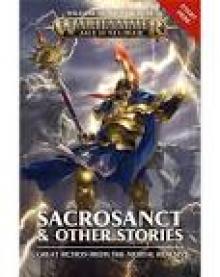 Sacrosanct & Other Stories
Sacrosanct & Other Stories Ultimate Heroes Collection
Ultimate Heroes Collection Cthulhu Deep Down Under Volume 2
Cthulhu Deep Down Under Volume 2 Erotic Classics II
Erotic Classics II Dynasties: The Elliotts, Books 1-6
Dynasties: The Elliotts, Books 1-6 Dynasties:The Elliots, Books 7-12
Dynasties:The Elliots, Books 7-12 International Speculative Fiction #4
International Speculative Fiction #4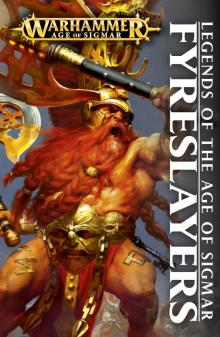 Fyreslayers
Fyreslayers One Night In Collection
One Night In Collection Mortal Crimes 2
Mortal Crimes 2 Some of the Best from Tor.com
Some of the Best from Tor.com Howl & Growl: A Paranormal Romance Boxed Set
Howl & Growl: A Paranormal Romance Boxed Set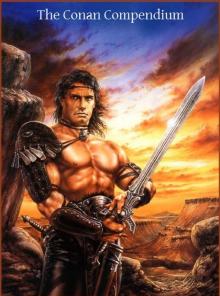 The Conan Compendium
The Conan Compendium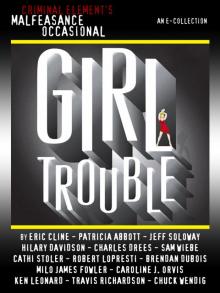 The Malfeasance Occasional
The Malfeasance Occasional Brides of Penhally Bay - Vol 4
Brides of Penhally Bay - Vol 4 Brides of Penhally Bay - Vol 2
Brides of Penhally Bay - Vol 2 Brides of Penhally Bay - Vol 1
Brides of Penhally Bay - Vol 1 School's in Session
School's in Session International Speculative Fiction #5
International Speculative Fiction #5 Erotic Classics I
Erotic Classics I Legends: Stories in Honor of David Gemmell
Legends: Stories in Honor of David Gemmell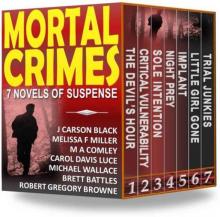 Mortal Crimes 1
Mortal Crimes 1 The Classic Children's Literature Collection: 39 Classic Novels
The Classic Children's Literature Collection: 39 Classic Novels Don't Read in the Closet volume one
Don't Read in the Closet volume one Some of the Best from Tor.com: 2014: A Tor.Com Original
Some of the Best from Tor.com: 2014: A Tor.Com Original The Fitzwarren Inheritance
The Fitzwarren Inheritance All Things Zombie: Chronology of the Apocalypse
All Things Zombie: Chronology of the Apocalypse Hammer and Bolter - Issue 12
Hammer and Bolter - Issue 12 Kiss Kiss
Kiss Kiss Dog Stories
Dog Stories Bad Blood Collection
Bad Blood Collection